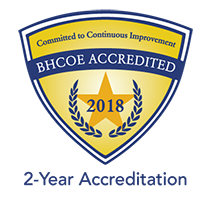

Learners with Autism have a unique way of looking at the world. They often see the parts of the whole, but have difficulty putting everything together. They also struggle with putting themselves in someone else’s shoes and demonstrating empathy towards their peers, which can lead to trouble making and keeping friends. We are able to design programs to meet the needs of these learners to help them develop skills to navigate their school and social environments in a way that is meaningful and results in real growth over time.
PEAK is a relatively new curriculum in the ABA field. At Nexus, we’re always looking to the newest peer-reviewed research and contemporary practices to ensure that our clients are getting the best possible service.
We use a combined curriculum and assessment program called PEAK (stands for Promoting the Emergence of Advanced Knowledge) that directly targets improvement in cognitive skills and what’s known in the field of psychology as “theory of mind,” which is essentially being able to put yourself in the place of someone else and discern what they might be thinking or feeling. PEAK moves beyond the VB-MAPP (see programs for younger learners) into more advanced language skills, thought skills, and academic skills that are vital to learning and communicating on the same level as peers and being able to access the “hidden rules” in any setting.
We want our older learners to have the same skills as their peers in all domains, and that means tackling teaching them how to learn outside of sessions. We want to teach them to learn by observing and not just repeating the rote facts we’ve taught. We want them to make connections and begin to inference. We want them to explore the world and feel comfortable doing so.
Programs for these learners may look like table work programs while cognitive skills are targeted. We will ensure your learner has all the background skills he or she needs before moving into more advanced content. We work on processing information through all of the senses for multi-modal learning. They may watch vignettes of social interactions, engage in video-self-modeling, do role plays, and learn the basic rules for social situations. They may generalize these skills with a peer or sibling. We might even pull you, parents into the mix!
The hours to build these more advanced cognitive skills might be just as intensive as for a younger learner, and could replace up to a half-day school program. Alternatively, if your child has a strong foundation coming in, we may only need to spend a few hours a week on cognitive skill development and a few more hours on social skills development. Each program is tailored specifically to what your child needs.
Your ABA therapy team will work closely with your child’s school team to ensure growth is happening on all levels. Your BCBA might go observe your child in the classroom, collaborate with the classroom teacher, and go to IEP meetings with you.
No matter where you’re at in the process, we would love to hear your questions and concerns. We are here to help. Give us a call! Family Support would love to learn more about your loved one with autism and your family.
When you’re ready, we’d love to meet you! When you’re ready to move forward, we will schedule an initial intake appointment. This is designed to let you meet one of our clinical staff and have more specific questions answered. And if you’re ready, this can be a jumping off point to begin therapy.
At the initial intake appointment, we just want to have a conversation with you as a parent about your concerns for your child. Our Lead BCBA will be the one to meet your family for the first time and will ask questions about your child, your concerns, and what you’ve experience so far. This meeting is just a conversation and should be a comfortable place for you to ask questions and express yourself.
A diagnostic interview will be conducted with you, the parents and/or caregivers, to obtain detailed information about the referral concerns and your child’s developmental history, medical history, and family history.
Direct observations of your child by a Behavior Analyst (BCBA), an Assistant Behavior Analyst (BCaBA), or a Registered Behavior Technician (RBT), all of whom are certified by the Behavior Analyst Certification Board.
At the end of the intake appointment, the Behavior Analyst will discuss clinical impressions and schedule 1 to 2 follow up assessment sessions, during which we will work more specifically with your child to find areas of strength and deficit to help us set more accurate goals.

